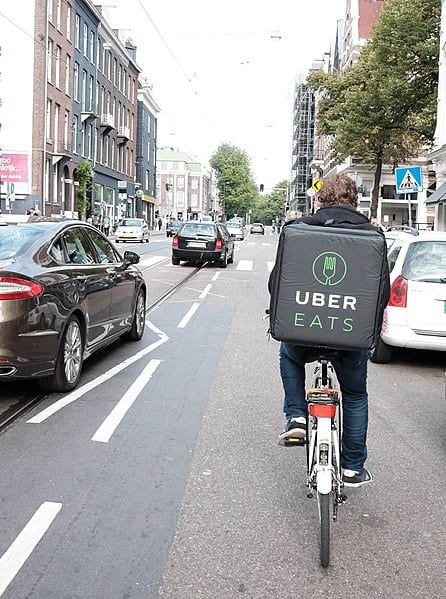Automation helped kill the American Industrial Worker. Now many fear that automation will come to kill the Impoverished Service Worker. The allures of automation are significant. A work force that never complains, never makes demands, and always does what it’s told is the dream of all management.

But automation comes with problems of its own, particularly in the service sector. Machines need maintenance and repairs. They come with large upfront costs. Workers and customers will often need to be retrained on how to interact and interface with the business. Deployment takes time and years of careful planning to execute. And it doesn’t always work. Timelines regularly get pushed out. Machines never work perfectly the first time around, and even when they do, integrating them into the rest of your corporate supply chain and processes is often far harder than initially anticipated. Automation is a long road to embark on and once started, going back is rarely an option.
What then is a corporation to do in the face of strong labor headwinds? When employees are becoming ever increasing drains on spreadsheets, but are unable to secure the cash or credit to invest in automation?
Uberize don’t automatize.
Instead of owning expensive silicon robots and all their attendant headaches, let another company match your labor needs with an unlimited pool of organic robots. It’s a win-win.
Management gets rid of the pesky labor clogging up it’s balance sheets and the matchmaking company gets to skim money off every transaction. Former employees, of course, will be left holding the bag. The main reason why uberization is so lucrative is because Uber, Doordash et al. are simply abusing massive loop holes in the law. Since all drivers are classified as free lancers in most jurisdictions, there is a significant downgrade in the types of protections offered, ranging from guaranteed overtime to healthcare requirements.
Silicon Valley networking companies (that is what they are, they create a network for you to populate and match) find some of their edge in their basic product, but a lot of their advantage is derived from skirting the law. It’s why Uber and others so viscously fight any and all potential regulation that could classify their “free lancers” as actual employees, their margins would collapse and many behemoth Tech companies could outright fold.
But until regulation catches up (if it ever does), networking companies will be looking at industry after industry to develop ways and means to apply their legal arbitrage. Already, a nightmare scenario is approaching where an entire supply chain could become purged traditional employees.
Consider the existence Mr. Beast Burger. Jimmy Donaldson, a.k.a Mr. Beast is a social media influencer who one day decided to use his brand to start a chain of restaurants. Except he really didn’t. He created a brand that also happened to have a menu. Nothing too exotic, mostly burgers and fries. He then had another company, Virtual Dining Concepts, assign his menu and brand to a variety of professional kitchens across the United States. The kitchens receive orders online or via delivery app, cook the food, hand that food to a freelancer driver and it gets delivered to final customer. Mr. Beast owns nothing except the ethereal brand and collects on essentially a naming license.
How long until we have major food chains simply all go the Mr. Beast route? Own nothing except a brand, maybe a generic menu, and absolve yourself of all responsibility and watch the money roll in. How extreme can they go?
The kitchens in use are still staffed by professional employees, but at what point does a restaurant decide that keeping regular employees is too much hassle? Is there an eventuality where owners and chains simply decide to liquidate all their employees and hire another middle person company to essentially rehire “freelance” cooks to use their kitchen? Do kitchens even need to exist? Why not simply go direct to home kitchens?
What about front staff? If the kitchen gets liquidated, then Waiters and Waitresses, who are already mostly paid on the generosity of customers, can easily come next. Why not simply discharge employee-employer contract altogether and have a networking company take care of staffing?
From top to bottom the entire food service ecosystem could easily become uberized. Where ethereal mega brands dominate the market based on Internet fame and common metrics such as good food or service have been totally discharged.
And food service wouldn’t be the first, just as the taxi industry wasn’t first. The limit, quite literally, is the law. So long as a position can be legally called a contractor role when routed through a networking company it will eventually be routed through a networking company.
In no way are all the effects of uberization negative. They permit a huge number of people to partake in jobs they would never have been able to do otherwise. Food Delivery has been a massive boom and overall job creator. Restaurants are able to get sales they might never have gotten before, and drivers a job that would never have existed. But neither can the future ahead be ignored. The core business of networking apps is largely legal arbitrage. Rules exist for a reason, even if it is at the cost of economic growth. A nation of free lancers, brand owners, and Silicon Valley middle men is what potentially awaits. I don’t particularly relish the thought.
The option should always exist for an individual to easily choose to become self owned. But so too should there be the option for stability and consistent wages and legal protections.

















Add comment